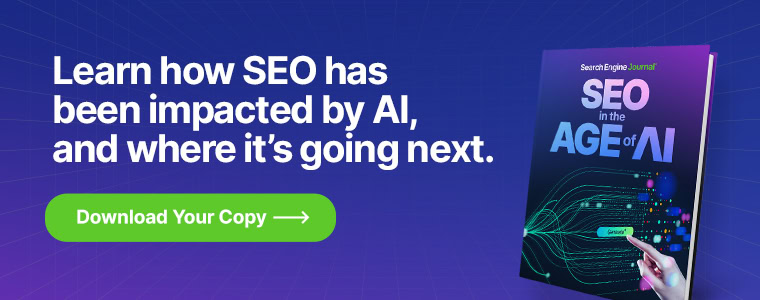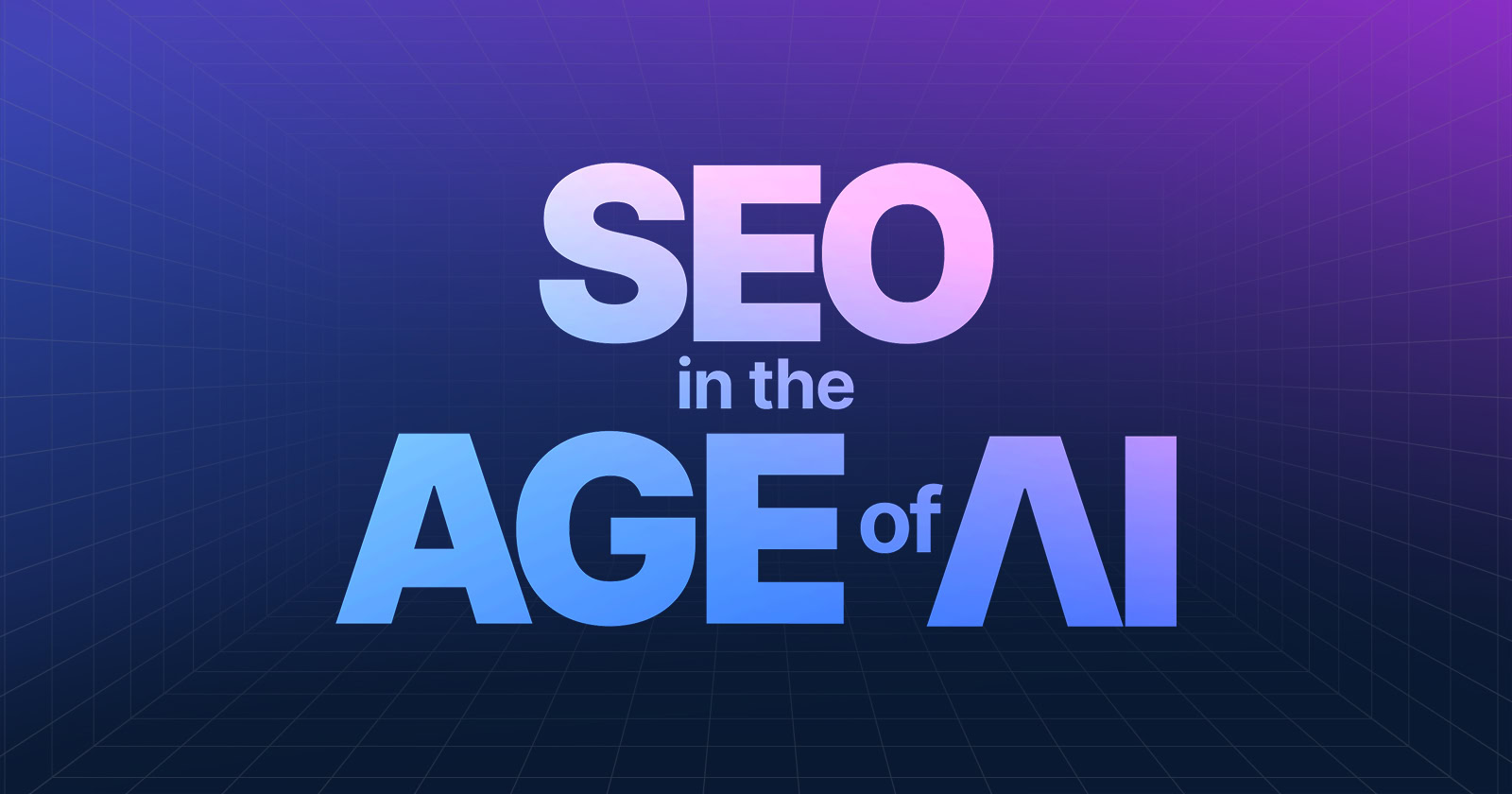For better or worse, AI has become a dominant force in SEO.
SEO professionals have been grappling with AI for years in Google’s algorithms, but the technology has moved to the forefront of digital marketing. The largest tech companies are developing the technology quickly and pushing products out to customers, trying to stay ahead of the curve.
This has resulted in several AI and generative AI releases, including LLM chatbots, chatbot integrations into search platforms, and AI-based search and research products.
AI threatens to be one of the most disruptive forces in SEO and digital marketing.
SEJ’s latest ebook explores the recent history of AI and developments in the search and marketing industries. It also provides guides and expert advice on building AI into your strategy and workflows.
Download SEO In The Age Of AI to expand on the learning in this post.
SEO Professionals Must Develop AI Best Practices
To compete in search environments built on AI algorithms and with user-facing generative AI features, SEO professionals must learn how the technology works. You need to know how to interact with AI on several fronts:
- Optimizing for AI-powered search algorithms.
- Building keyword and search strategies that take generative AI search features into account.
- Employing AI tools to help improve productivity.
- Understanding where AI needs human guidance and what tasks should not be delegated to it.
- Differentiating your brand and content from competitors where AI tools have lowered the cost and barriers to marketing at scale.
Creating best practices that define your stance on and relationship to AI and generative AI will position you to succeed as the technology continues to develop and as user trends continue to change.
Look Back On AI Development To Predict Future Trends
Google spent many months rolling out AI products gradually, testing as it went. To understand how AI development will continue impacting SEO, study recent developments and releases, such as how Google has been changing SERP features and algorithms.
See where AI fits into these developments to predict how search might change.
The ebook collects almost a year of SEJ’s coverage of events in the industry and updates from Google, from product testing and releases to public reactions and studies about impact.
One key point is Google’s development of on-SERP features that give users answers without clicking through to a website. These features, including generative AI answers, can make it much more difficult to acquire traffic from certain queries.
That doesn’t mean you can’t make use of these queries, but it’s imperative that you correctly identify user intent for your target queries and build strategies specifically for acquiring SERP features.
Explore the history of AI in SEO and predict what’s coming next by downloading the report.
SEO Professionals Must Focus On Authority, Brand, And Trust
While disruptive, new user interactions with AI present opportunities. Becoming a cited source can be a great way to power brand awareness. However, trust is also at a premium if you want to keep users’ attention and earn conversions.
Building your content and information architecture with AI in mind can help you stand out in multiple touchpoints of a user’s journey.
Understanding where you must differentiate yourself from automated marketing and build humanity into your brand is now a powerful way to stand out in the minds of users. Building content with AI-friendly organization but human-focused insights helps you serve the right audiences at the right time.
The ebook collects insights from SEJ contributors focused on how building AI into your content strategy goes beyond using it to create for you.
Learn how to build trust and authority in the age of AI with insights from top experts.
Get Familiar With What Generative AI Is Best At
Effectively incorporating generative AI into your workflows requires that you understand how it works and what it’s good at.
You can use generative AI tools to build connections between ideas and words quickly, to parse a lot of data to find commonalities, and to draft and expand ideas, among many other things.
Generative AI can make some tasks much faster, but accuracy will always be an issue, so it’s best when the tasks involve redundancy or human checks.
For example, you could use generative AI to assist with internal linking. It’s ideal for quickly evaluating the pages of a website and suggesting semantic connections between pages. Then, a human can review for accuracy and execute the links that make sense.
We collected some of the best examples of how generative AI tools can improve human workflows in the SEO In The Age Of AI Ebook.
To learn about all this and more, download your copy of SEO In The Age Of AI.

